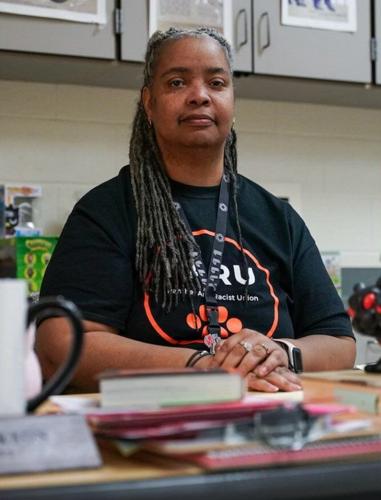Welcome back, your dreams were your ticket out
Welcome back, to that same old place that you laughed about
Well the names have all changed since you hung around
But those dreams have remained and they’ve turned around
Who’d have thought they’d lead ya
Back here where we need ya?
— John Sebastian
For veteran teachers, it’s difficult to think of going back to school without the catchy beat of the “Welcome Back, Kotter” theme song vibrating in our heads. There is an inevitable nostalgia brought on by the opening of school, a tangible excitement to meet and greet the new faces coming into our classrooms. Few educators will admit to the loneliness that seeps in at the summer break.
You can usually see the gleam in their eyes before it’s buried beneath the glaze of interminable faculty meetings, initial in-service days and the long, slippery slope to the burnout that awaits every educator as they return to the classroom. It’s no secret that the education profession is in a free fall as teacher shortages spike to unprecedented numbers. The reasons, beyond burnout, are the ongoing culture wars waging across our nation. Caught up in the muzzle of neutrality, teachers now are finding their classrooms to be increasingly lonely spaces.
Gone are the days when young educators were urged to simply go into their classrooms, close the door and teach. If COVID-19 taught us anything, it’s that isolation is not good for the mental health of kids or teachers. During the pandemic, teachers were unsung heroes, wrestling with technology in a desperate effort to maintain a semblance of sense and sanity in a world gone mad with germs. It was a short-lived romance as most Americans, like kindergartners, have short attention spans.
Here are three tips to help teachers rekindle the passion as they head back to school this year: Find ways to be the joy in a child’s life; create safe and comfortable spaces for your students; and model what it means to be a kind human being.
As the late poet Maya Angelou urged, “Be a rainbow in somebody else’s cloud.” If you’re having a tough day, take a moment to acknowledge a child who might not otherwise be recognized. Pick up the district phone and call a parent to share something awesome their kid did in class that day.
In this day and age of digital technology, when most callers know who is on the line before they pick up, have a little fun with this. You’ll enjoy the extended pause on the line and maybe chuckle when an astonished parent asks, “Are you sure you have the right kid?” You’ll make some parent’s day. You’ll definitely make the kid’s day. You’ll feel better about yourself. And most importantly, you will have connected with the community in a way that is priceless. A young colleague gave this a try and so enjoyed the interaction, she called three parents, not just the one, improving her mental health and well-being for the day.
Classrooms are living laboratories where ideas are dissected, analyzed and scrutinized from all angles. Create safe spaces where all students can be heard, even dissenting voices. It is in disagreement that we learn the most about how much we do not know and how much we need to truly learn about ourselves and each other. The community you create in your classroom is a microcosm of the larger school community, which in turn is a microcosm of the community at large. The impact of a teacher is underestimated. As James Baldwin wrote in his collection of essays, “Notes of a Native Son,” “Those who say it can’t be done are usually interrupted by others doing it.” This may require you to interrupt a colleague, an administrator, even a community member to protect the sanctity of your classroom.
The community you build does not need to be limited to the classroom. The first day of theater class begins with a fist bump at the door and a brief exchange of stories. Music — usually show tunes — plays as students shuffle inside, intrigued to learn that the nuances of what will make them a good actor will make them a good human being. Eventually these subtle details of character and belonging move out into the hallway through spontaneous high-fives in the atrium or song requests outside of the cafeteria. So stand at your door in the hallway. Not because your principal directed you to, but so other students see you, get to know you, model your behavior.
“Understand that if we have to learn with each other we should also learn about each other so we can bring each other up.” With those words of educator and writer Christopher Emdin, here’s wishing you a fabulous 2023-24 school year!
Ben Hodge is a theater teacher at Central York High School in the Central York School District. He is a 2023-24 Teach Plus Pennsylvania senior policy fellow. Patricia A. Jackson is a senior English and creative writing teacher at Central York High School and a 2023-24 Teach Plus Pennsylvania policy fellow.





